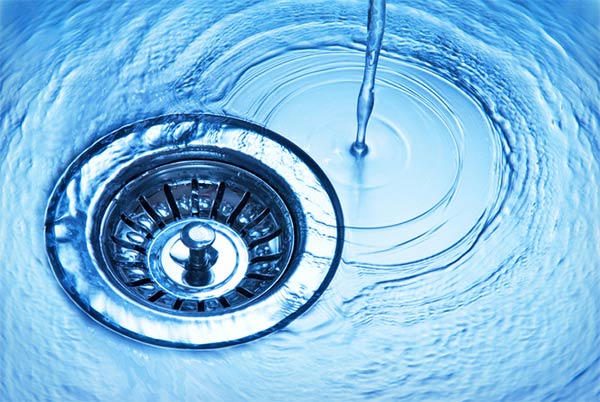Septic System Care
 Maintaining your septic system along with proper operating use on a daily basis will reward you with many years of service.
Maintaining your septic system along with proper operating use on a daily basis will reward you with many years of service.
Year round care tips
Never use a garbage disposal.
- Items grinded by use of a garbage disposal turn into small solid fragments. These fragments not only harm the plumbing inside a building; but also wreak havoc on a septic system. These fragments do not break down in the septic tank. The result is damaged lift pumps and drainfields that fail to distribute wastewater into the soil.
Never use powdered detergent soaps, Use liquid detergent soaps.
- Once powdered detergent soaps reach the septic tank; these soaps form back into a solid. Just like fragments from a garbage disposal, they damage a septic system the same way.
Never do a week’s laundry in one day, spread your laundry loads over several days.
- Water conservation is a must with septic systems. These systems are designed to accept and treat only so many gallons of wastewater in each day. Using more water than what your system is designed for may overwhelm the drainfield.
Be sure to use a lint screen on your laundry machine’s discharge hose.
- Lint entering the plumbing and septic system will act like fragments from garbage disposals and powdered detergent soaps, they damage a septic system the same way. Lint is also the most common culprit plugging plumbing lines forcing floor drains and laundry tubs to flood.
Never use antibacterial soap or cleaning products that say anti septic.
- Antibacterial soaps and cleaning products labeled anti septic will prevent the septic tank from working properly. Instead of a septic tank having separation (read what is a septic system) due to bacteria. It kills the bacteria and causes the liquid in the tank to mix. Therefore, disrupting the wastewater that is leaving the tank and causing a mixture that makes a drainfield difficult to treat.
Never drive over any part of your system with anything but a riding lawn mower or push mower.
- Driving over any part of your system with vehicles larger than a riding lawn or push mower may damage the septic system due to the increased weight placed on the soil above the system.
Never treat your septic system like a garbage can.
- Avoid pouring paint, grease, hard chemicals, Q tips, wet wipes or any personal items in the toilet. Our philosophy is as follows: anything you have in your hand, throw it in the garbage. It leaves your property during garbage collection. If it goes down the drain, you still own it until the septic tank is cleaned.
- Again, human manufactured solids do not belong in a septic tank. Just like fragments from a garbage disposal powdered detergent soaps, lint will damage lift pumps and prevent drainfields from distributing effluent into the soil
If you hear an alarm sounding, have wastewater flowing into your basement, or see wastewater surfacing above your septic system call immediately.
- An improper functioning system can be an imminent health threat to both the environment and the occupants (including pets) of the building.
- If an alarm is sounding in either your basement or garage, this alarm is telling you your lift pump failed to turn on and needs attention.
- If wastewater is flowing into your basement or surfacing above your septic system, it means two things:
- You have a lift pump that did not turn on and no alarm to warn you. The alarm may be switched to “silent alarm”
- Or a lift pump if you have one is working properly. However, the drainfield had failed to treat the wastewater from the septic tank.
Avoid letting excess water enter your system through leaking faucets and toilets. Beware that systems may be subject to overload during heavy rainfall or snow melt.
- Again, these systems are designed to accept and treat only so many gallons of wastewater in each day. Using more water than what your system is designed for may overwhelm the drainfield.
Practice water conservation.
- Studies show that the average person uses between 100 to 120 gallons of water a day.
- These systems are designed to accept only certain quantities of water use a day.
- It is poor practice to exceed normal water use.
Fall Septic System Care (in preparation of winter)
Cover septic tank, and lift station with straw.
- Doing this will give you better protection from your system freezing during the winter, if your system happens to freeze the result is a drainfield that will be unable to accept and treat wastewater from your septic tank. When this happens, you will be unable to use water unless the septic tank is empty. Under normal water use, a family of four can fill a septic tank in as little as five days. Which means if you want to use a frozen system as normal you will have to call us to empty the tank. The result may be costly. We prefer that you avoid this problem by insulating the septic tank, lift tank, and drainfield with straw.
Leaves or bags stuffed with leaves, are not as effective as straw. But may still be used.
- Marking your manholes with a stake is encouraged (helps us find your system during the winter)
Winter Care
It’s best to place a temporary fence around your drainfield and mound systems in order to discourage both snowmobiles and animals crossing over.
- The weight of snowmobiles and animals crossing your septic system will push the snow closer to the soil thus pushing the frost further into the soil which gives greater chance to a septic system freezing.
